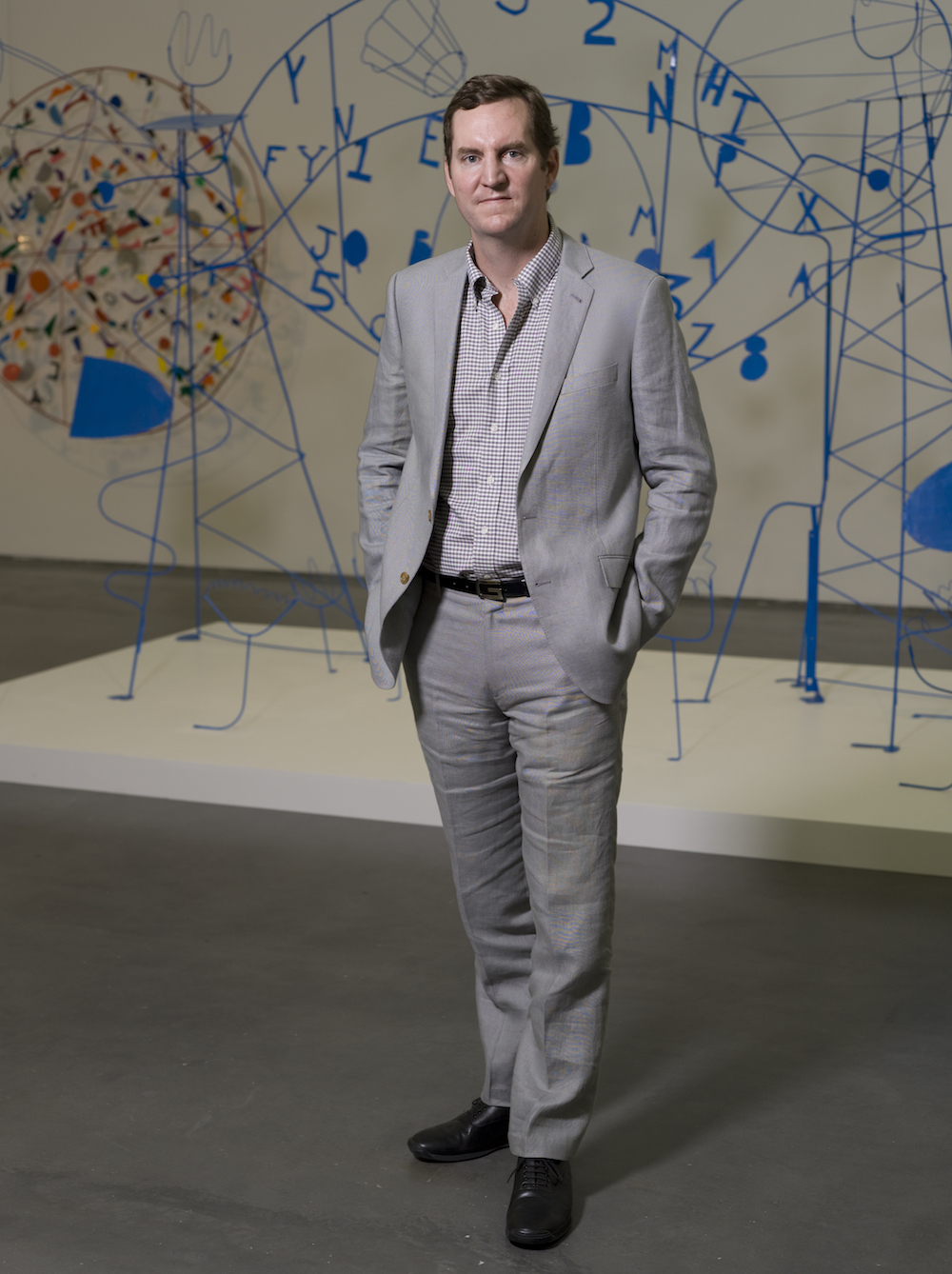
27 Jan A Matchmaker for Museums? This New Startup Wants to Connect Art Collectors With Institutions Looking to Acquire Adventurous Work
Source Credit: Images and content by Eileen Kinsella. See the original article here - https://news.artnet.com/art-world/museum-exchange-matches-donors-institutions-1939658
https://news.artnet.com/app/news-upload/2021/01/Michael-Darling-Museum-of-Contemporary-Art-Chicago.-Photo-Nathan-Keay-©-MCA-Chicago--1.jpg
In the absence of large-scale government support, museums in the US have long relied on their trustees for donations and loans—and many have felt beholden to their interests as a result.
Museum veteran Michael Darling, the outgoing chief curator at the Museum of Contemporary Art Chicago, aims to shake up that dynamic by launching a new startup next month that could open up collecting possibilities to museums, and potentially free them from the shackles of their trustees.
Museum Exchange, the digital platform Darling is co-founding with art advisors David Moos and Robert Wainstein, bills itself as new model for philanthropy. It allows museums to access works of art offered by collectors outside their established donor base.
The platform’s goal is “streamlining, updating, and democratizing the way museums collect,” Moos, who was previously curator at the Art Gallery of Ontario, told Artnet News. “There are many under-analyzed and little-discussed features of how institutions collect. Once we started developing this idea it became clear that Museum Exchange is a platform that could improve a lot of the inefficiencies in the industry.”
For example, museum collections have typically reflected the art in their community, Moos said, “and by that I mean collections of their trustees and stalwart supporters, people who are most connected to and invested in the institution,” a factor which sometimes dictates what art the museum feels obligated to acquire and show.
The system of local patronage comes with “great triumphs and great shortcomings,” Moos said. “Museums cultivate these relationships and trustees reciprocally cultivate their rapport with the institution and it becomes a little bit of a closed circuit that isn’t necessarily healthy. Museum Exchange aims to level the playing field.”
The platform could be a boon to museums seeking to diversify their exhibitions and show more historically underrepresented artists.
“As we’re talking to collectors we’ll focus on getting work by artists of color into the offering,” Darling said. “It might be seeking out collectors that we already know are collecting in an inclusive way” or informing collectors about artists and works they may want to pay attention to. “I feel like we could spur that, especially bringing to them the perspective of museums that want to tell a different story.”
On the museum side, the platform plans to gather institutional wish lists and identify gaps in collections.
“There is still a lot of redundancy in local collections,” Darling said. “You might have a bunch of one artist or one particular kind of school of art. Those artworks could be redistributed and have a bigger impact elsewhere.”
It will also find out from collectors which works they are ready to donate, and then cross-match those needs.
The service will cost museums, limited for now to those in the US and Canada, an annual subscription fee of $1,000 a year. Catalogues listing newly available works will be compiled quarterly.
Curators will pitch collectors a case for why a particular work is appropriate for their institution. At the end of the quarter, the donor reviews any cases made by interested museums and makes a decision. “It gives the donor some choice about which museum might be most appropriate for it, based on issues of geography, the size of the institution, and what the specific museum plans to do with that object,” said Moos.
Once a donor selects a museum and a match is made, the donor is then put directly in touch with the museum. But Museum Exchange remains involved in the entire process, guiding it from shipment to appraisal to processing. At the end, donors pay an administrative fee of about $500.
Museum Exchange started a trial run in October with roughly a dozen museums participating, including the Blanton Museum in Austin, Texas, and the Albright-Knox Art Gallery in Buffalo, New York.
“Often, this is a multi-step and cumbersome process,” said Moos. “So there are efficiencies to be gained when you start doing a lot of them.”
Follow artnet News on Facebook:
Want to stay ahead of the art world? Subscribe to our newsletter to get the breaking news, eye-opening interviews, and incisive critical takes that drive the conversation forward.
Source Credit: Images and content by Eileen Kinsella. See the original article here - https://news.artnet.com/art-world/museum-exchange-matches-donors-institutions-1939658

